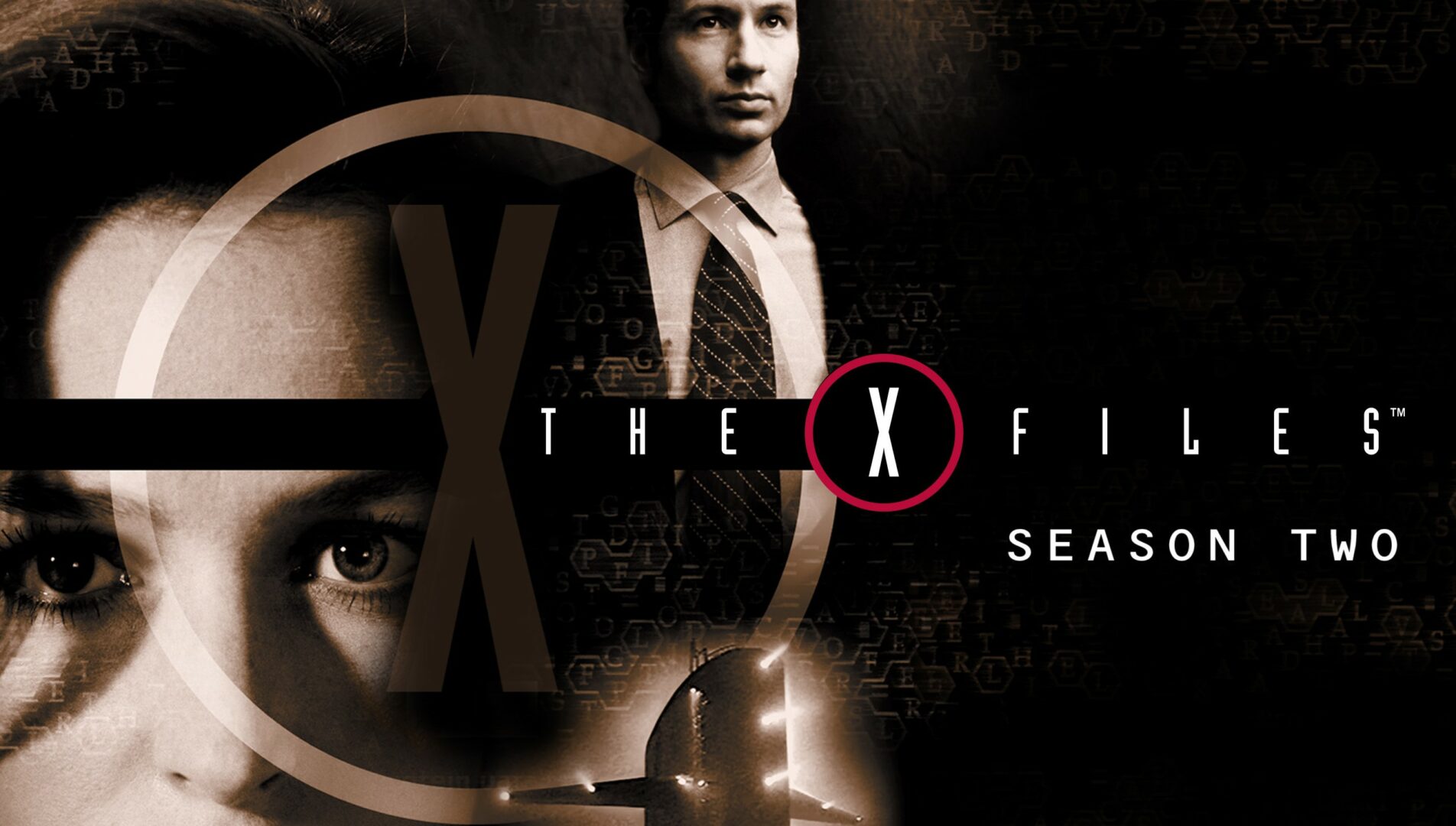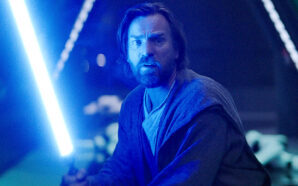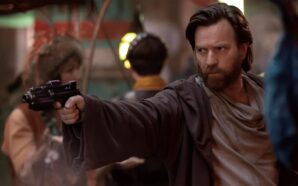In 2019 I wrote about the best and worst aspects and episodes of the first season of The X-Files, hoping to continue doing the same for each season and movie over several weeks. Five years later, I’ve gotten around to writing about season 2. My original rewatch was stopped dead by a notoriously bad episode (more on that later) but now I’ve begun anew, more committed than ever to reexperiencing all 218 episodes and 2 feature films.
The second season of The X-Files begins the process of expanding what tones and stories the series can successfully embrace. It becomes a much more flexible show when compared with the formulaic first season. It ventures into horror and comedy, classic stalwart sci-fi ideas like rapid aging, and also genuine monsters. It’s a much darker season than the previous, more willing to push boundaries. Abuse and violence towards women in prevalent in both the mythology episodes and the standalone ‘monster-of-the-week’ stories. There are multiple episodes in a row that involve rape as a plot point, a crutch the writers come to rely on far too much.
The show’s overarching conspiracy mythology expands and with each answer comes a multitude of more questions. It’s at a good balance at this point, with some meaty concepts to grab hold of mixed with lies and wrong turns that feel like intentional obfuscation of what’s really happening, even if the big reveal will soon be that the writers are even more confused than the viewer. We learn for that a shadowy government cabal is in league with the aliens rather than opposed, and we actually see aliens for the first time in the series. But it’s the human characters who are much more of interest. The Cigarette-Smoking Man becomes more than just a symbolic presence and begins to feel like an actual character, Krycek is introduced as an adversary to Mulder, and on this rewatch Mr X left more of a mark than I remember. I thought of him just as another Deep Throat but after a couple of episodes he sets himself apart quite nicely with an angrier and more volatile presence. It’s Skinner though that proves to be the perfect addition to the show, a character who can be both a foil and ally of Mulder and Scully.
The second season feels like it takes an awful long time to actually get going. The season begins with Mulder and Scully reassigned; the X-Files shut down. It’s not until after this 8-episode arc that the show begins to settle back into a status quo. This could be conducive to some interesting storytelling but the show never feels comfortable in this upended state. The show works best when Mulder and Scully are together and the episodes in which they are separated just feel wrong. The shake-up was because of Gillian Anderson’s pregnancy, and with her role reduced it very much becomes the Mulder show. I’m sure in later seasons I’ll be begging for some bold mix-up to the formula but at the start of season 2, with the show still finding its feet, I was desperate for the series to get back to its status quo and centralise the interactions between Mulder and Scully. Almost antithetical, it’s not until Mulder and Scully are finally back together, working cases each week, that the spirit of experimentation that defines the season’s back half can begin in earnest.
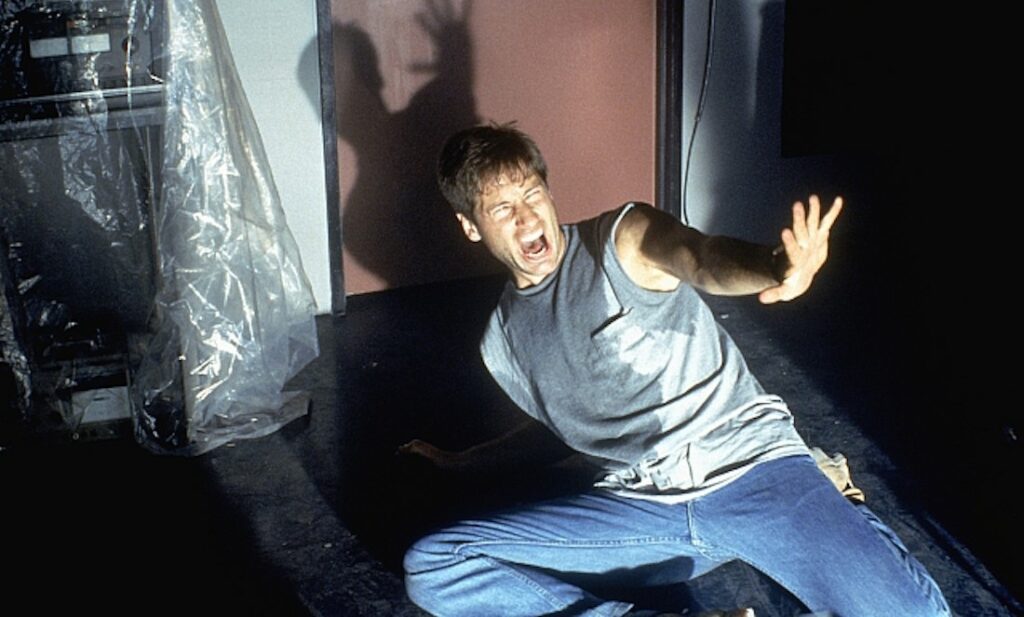
Best Character: Mulder
When I chose to name a best character each season, I was sure the title would alternate frequently. Yet, so far, it’s two for two for Fox Mulder. It has to be Mulder. This is his season; he’s the singular protagonist for a good chunk of episodes. Even when Scully does return from her abduction she only really gets one episode vaguely dealing with her mental state after everything that has happened: Irresistible. Mulder meanwhile gets an actual narrative arc. He suffers a crisis of faith, and I enjoyed the nuance of it on this rewatch. I remembered Mulder as just being the ‘believer’ but it’s deeper than that. I never really considered ‘I want to believe’ as something more than a soundbite but it’s that choice/desire/need to believe that drives him rather than the belief itself. And the second season watches him struggle to maintain that attitude. He’s powerless in the face of this huge conspiracy, one that takes Scully away from him, because of him, and even goes further back to question what happened to his sister.
Sometimes Mulder is left too downbeat and miserable, like in 3, but in other episodes like One Breath it makes him feel more fleshed out than just the dry, witty agent. The second season is the perfect time to tell this story, setting up his belief system in the first to then question it in the second. It certainly makes more sense here than when Mulder denies the existence of aliens in season 10. He’s eventually imbued with purpose again with Scully’s return, the encounter with a clone of his sister, and the events of the finale. It’s these mythology episodes that develop him and I would have liked to have seen more development in the standalone instalments. In Excelsis Dei, a poor episode, Mulder completely loses interest in a rape case as soon as he rules as ghosts as the culprit, even going so far as to victim blame. This could be an interesting piece of characterisation, with Scully having to remind Mulder of the people at the heart of these cases rather than focusing purely on his crusade, but I get the sense the writers just stumbled into it rather than meaningfully pointing it out.
Biggest Disappointment: Blood (S2E3)
Blood is a good episode that could have been great. The premise is fantastic: the citizens of a small town start to see digital messages on everyday electronic objects that support their greatest fears, causing them to commit killing sprees, with ambiguity around how much is due to the effect of pesticides and how much is a shadowy government conspiracy. The scenes with these ordinary folks suddenly driven to kill (a lone woman told her mechanic means to rape her; a claustrophobic told the elevator he’s on is running out of air) are chillingly effective. In a bizarre twist, it’s the Mulder and Scully scenes that let the episode down. This is the episode most damaged by Gillian Anderson’s absence. Mulder and Scully have little interaction. They don’t converse and instead send reports back to one another that are read as interminable voice over. When not paired with anyone, Duchovny’s low key energy can be a little flat. I wish the writers had saved the idea for later in the season when the two were reunited. The Lone Gunmen appear for one scene and if this was a later season when those characters were firmly planted as fan favourites then they would probably be featured a lot more heavily to make up for Scully’s absence.
Most Underrated Episode: Aubrey (S2E12)
A disaffected woman in trouble. A straight razor-wielding serial killer. An absurd mystery plot and killer reveal. The reason I enjoy Aubrey so much is because it’s the closest we’ll ever get to an X-Files episode in the style of Italian Giallo, a genre I love. Its premise of a serial killer gene passed down from grandfather to granddaughter is silly but fun, and no matter the quality of the script he’s given director Rob Bowman is always on top form. He made his X-Files debut last season but Aubrey is his true opening showcase; the episode that made him the go-to director for the next few seasons and the first movie. The amazing handheld camera work, mixed with the lighting and use of shadow, make this the most visually dynamic episode of the second season.
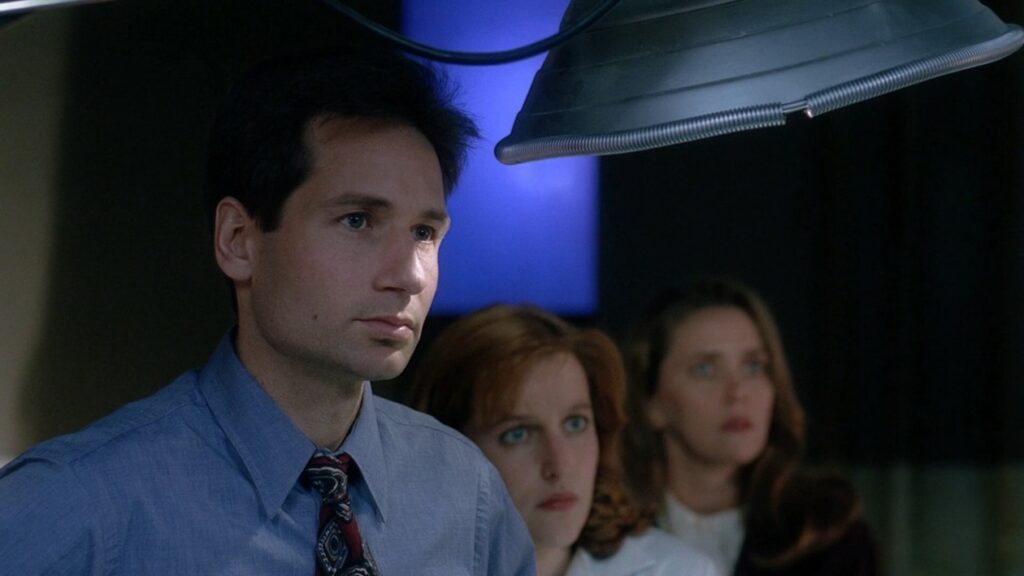
Best Guest Star: Nick Chinlund in Irresistible (S2E13)
There are an awful lot of great guest stars this season but my favourite is Nick Chinlund as Donnie Pfaster, a ‘death fetishist’ – which is a phrase used because the censors wouldn’t allow the writers use of the term ‘necrophiliac.’ Irresistible is an episode much more grounded than most, with debatably no supernatural or sci-fi aspects, instead being a classic nineties serial killer thriller. The reality makes it all the most unsettling and Chinlund does a fantastic job of finding the balance between ever so slightly heightening his performance to fit the entertaining tone of the show but being realistic enough to be genuinely scary. He has the uncanny ability to make his voice seem alien to his body, a disturbingly soft tone coming from a hulking form, spoken like the character himself is reading a prepared script. In a horror series full of supernatural monsters, Chinlund manages to make a regular human the scariest monster of all.
Best Monster: The Flukeman from The Host (S2E2)
The standalone episodes of The X-Files are often referred to as ‘monster-of-the-week’. Up until The Host, the term ‘monster’ had been used pretty loosely. The Flukeman is the show’s first true proper monster, and it’s a doozy. The design is an iconic image from the show and the Flukeman remains one of the most memorable foes Mulder and Scully ever faced. It’s genuinely creepy but also the right kind of silly, too. I had forgotten that they capture it halfway through the episode and lock it up in a hospital, which is maybe treating it too much like a man, but I’ll forgive any questionable moments because the writers actually have it escape through a toilet U-bend, something they teased with Tooms in the first season and then chickened out of. The sound design is also great: that scream it lets out when cut in two is harrowing.
The ‘What the Hell Did I Just Watch?’ Award: Humbug (S2E20)
With Humbug, Darin Morgan, the guy who played the Flukeman, delivered a script that forever changed what The X-Files could be. I remember watching this episode for the first time and my perception of the show shifting monumentally. The X-Files can be many things and with Humbug it became a comedy, something the show would come to embrace. In fact, in its two modern revival seasons, the only thing the show was successful at was being a comedy, intentionally and unintentionally. Darin Morgan made such an impact on the show, carving out his own little corner of the series, his own fandom, with surprisingly few episodes to his name. The X-Files had been flirting with comedy, most notably Die Hand die Verletzt begins as a black comedy but can’t sustain that tone throughout, but Humbug is a milestone for the show. To this day it’s hilarious, with Mulder and Scully investigating deaths in a weird and wonderful sideshow community. I was happy to find it holds up and has aged really well thanks to the humour always being good natured and dealing more with reactions to people’s differences rather than the differences themselves. And the humour doesn’t betray the show. Without the gags it’s still a solid mystery and stays true to Mulder and Scully’s characters. It’s the same show, just from a different perspective.
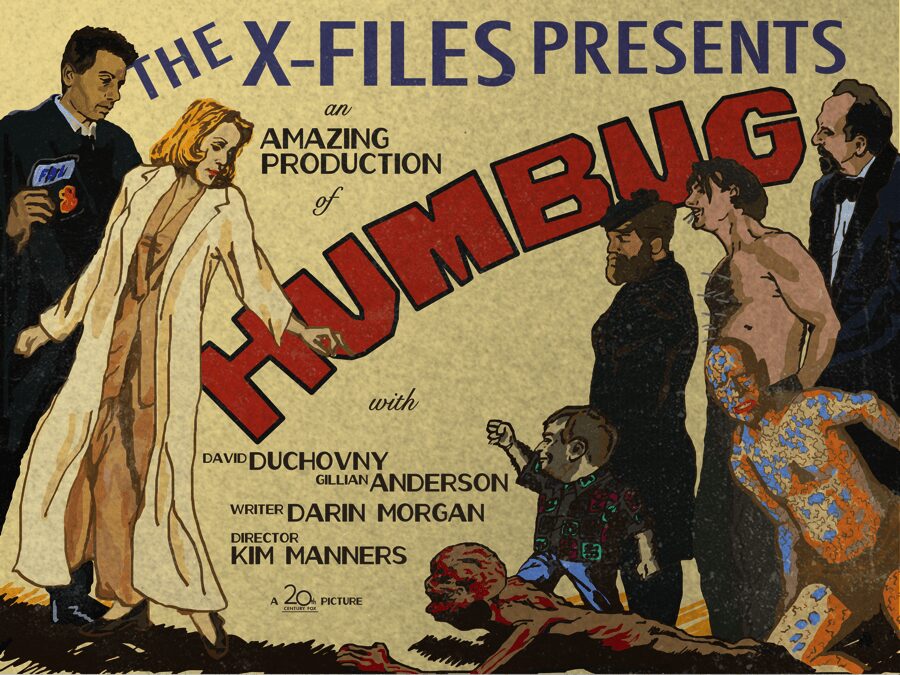
Worst Mythology Episode: Red Museum (S2E10)
Red Museum is a confused mess of an episode and very different from the usual mythology instalment. The first half plays like a standalone episode only to suddenly turn into a sequel to season 1’s The Erlenmeyer Flask in its back half. The issue is that so much of what seems like set-up in those first twenty minutes is jettisoned and becomes irrelevant. I was trying to work out the mystery, put all the pieces together, only to have the answer be ‘aliens,’ a disappointment also felt in the first season’s Gender Bender.
The episode was initially written as a crossover with the series Picket Fences only to be reworked, those aspects remaining only to muddy the waters further. There are so many different ideas that don’t quite come together. A vegan cult who are ultimately little more than a red herring; a sudden plane crash that comes out of nowhere; kidnapped teenagers; peeping toms; tainted meat; a rape epidemic. It’s all over the place. It’s revealed there are two different government experiments going on, one with kids and one with cows, and each feels like its own episode. Then ‘Crew Cut Man’ suddenly appears and starts killing people before being killed off himself, which is a shame because he could have been a cool recurring enforcer character. Red Museum is Chris Carter’s first real wobbly moment in writing the serialised story and an indication he doesn’t quite know what he wants to do with this story.
Best Mythology Episode: One Breath (S2E8)
While Colony/End Game is the season’s big movie-like two-parter that all following mythology episodes will try to emulate, One Breath is an episode that feels like the conclusion of the series’ first act. Scully is returned from her abduction, appearing in a hospital on the brink of death, while Mulder deals with his personal feelings and desire for the truth. It is a true escalation of the story, a real ‘nothing will be the same again’ moment. Skinner picks a side while Mulder confronts the Cigarette-Smoking Man at gunpoint, the enigmatic figure becoming an actual character for the first time, while Mr. X proves how different a presence in the show he is when compared to Deep Throat. It doesn’t have the same blockbuster bombastic energy as many mythology episodes but One Breath has the feel of a personal and meaningful season finale to me.
While the episode plays into the ever-expanding and increasingly confusing conspiracy mythos, the true heart of the episode is its personal stakes. It’s an episode about Mulder and Scully’s relationship. Their bond and reliance on each other, a key marker on their combined character journey. The episode also finds a way to include its own supernatural aspect, with some simple but effective visions of Scully in some otherworldly plane. The conflict over what to do with Scully is also strong. To let her go, as per her will, or believe she’ll get better. Melissa Scully is introduced as a potential romantic interest for Fox, and while that fails, I do like the nuanced conflict she has with Mulder about her sister’s fate. Both are believers but in different aspects of the supernatural, and that gives the episode a much more interesting conflict than the regular believer/sceptic dynamic. One Breath has greater depth of character and storytelling than most episodes.

Worst Standalone Episode: 3 (S2E7)
The X-Files becomes a show that can competently support multiple tones, from horror to comedy. Misery, however, isn’t one of them. This is the first episode without Gillian Anderson, set between Scully’s abduction and return. That’s a potentially fascinating position in which to explore Mulder but 3 features no nuance or real insight; it’s 45 minutes of Mulder wallowing in misery. Duchovny’s underplaying of everything doesn’t work here and he comes across as dull, even in the supposedly erotic scenes with his real life girlfriend at the time. Mulder acts out of character, falling for a woman on the run from a cult of vampires in LA. The episode is perhaps the most embarrassing example of the nineties desperately trying to draw parallels between vampirism and AIDS, complete with grunge stylings and cringey edgelord dialogue. There’s also no sense of fun or intrigue from an investigation: Mulder arrives at a crime scene and lectures the local cops on what’s happened, he already knowing everything from previous offscreen crimes. 3 is the episode that stopped my rewatch of the show five years ago, but I made it past it this time… barely.
Best Standalone Episode: Soft Light (S2E23)
This is very much a subjective choice for the top spot but I’m still going to argue for Soft Light as a great episode of the show. My nostalgic love for it comes from it being the very first episode of The X-Files I ever saw. A schoolfriend came round one day with the DVD boxset and we watched a bunch of his favourite episodes, starting with this one. I loved it and began the next day watching through the series from the beginning.
At first glance, Soft Light is a fairly standard episode of the show, a classic supernatural procedural investigation, ideal as an introduction to Mulder, Scully, and their work, but on deeper inspection there are some key elements that make it stand out. This was the first episode written by Vince Gilligan, who would go on to be a key writer of many notable episodes before creating Breaking Bad. While his script was heavily rewritten, there are hints at his soon to be unleashed talent. The episode rests on Dr Chester Banton, a scientist whose shadow becomes a black hole after an experiment. He’s a fantastic character, both dangerous and sympathetic, due to a wonderful performance by Tony Shalhoub but also Gilligan’s writing. In his first TV script he’s already creating engaging and sympathetic characters with a dark side, something that will define his later work.
The episode also interestingly inverses some season one tropes. Instead of an old mentor or partner of Mulder and Scully asking for help on a case, this time it’s a former student of Scully’s, flipping the dynamic. The student even betrays them halfway through, creating another avenue of conflict, before dying at the end, which rests heavily on Scully’s conscience. And while in season one Mulder would have reached out to Deep Throat for advice, here he reaches out to Mr. X who doesn’t help and actually becomes the villain. It’s a great development, revealing his dark side and what sets him apart from his predecessor. He’s a proper scary, threatening bad guy who wants to experiment on Banton, and Mulder ends up leading X right to him. Soft Light deals with the big shadowy, dangerous government where no one can be trusted better than most mythology episodes. If Mulder and Scully don’t ‘win’ at the end of an episode, they usually have a neutral ending with things culminating on their own. This is an episode in which they lose and reckon with the blame they feel; Scully for her protégé’s death and Mulder with failing to protect Banton.
Soft Light is a brilliantly atmospheric episode. The visuals, necessary for an episode where the plot is literally about light and shadow, are great and the episode has some of composer Mark Snow’s best work. The story, visuals, and sound all culminate in one of the most memorable final scenes and images of the entire series. Banton bound to a chair, government agents coldly watching him, as a bright light flashes on and off, his deadly shadow appearing and disappearing, and a single tear rolling down his face while the incredible sound design of a machine continues into the credits. Haunting.
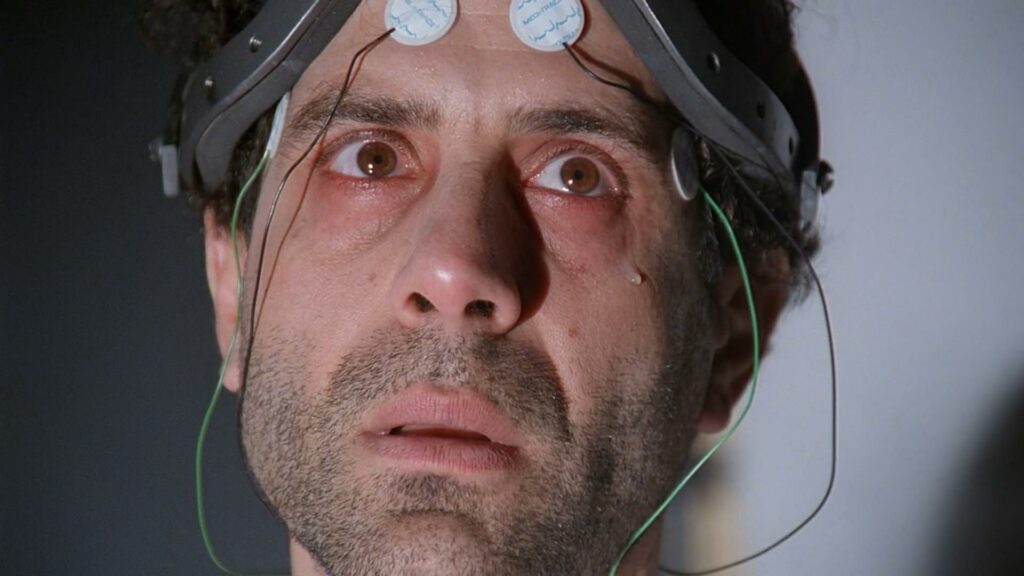
Top Five Worst Episodes:
5. Død Kalm (S2E19)
4. Red Museum (S2E10)
3. Fearful Symmetry (S218)
2. Excelsis Dei (S2E11)
1. 3 (S2E7)
Top Five Best Episodes:
5. The Host (S2E2)
4. Irresistible (S2E13)
3. One Breath (S2E8)
2. Humbug (S2E20)
1. Soft Light (S2E23)
I’ll be back in a few weeks (an appointment I intend to keep this time) to discuss the best and worst of the third season of The X-Files, which if I remember correctly might just be the best season of all.




